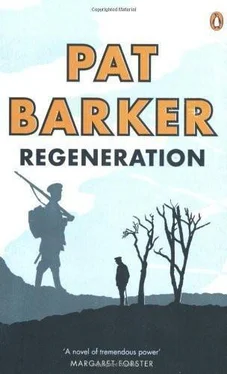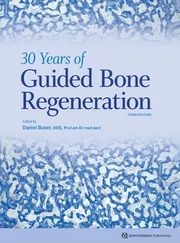Later that summer he’d given a talk to the speech therapy group on monkeys. M was to him what c was to Dodgson, but he was interested in monkeys, and still more interested in Darwin’s theory of evolution, which by this time had achieved acceptance in some circles. Knowles Bank was not among them. His father had been furious, not because Rivers had stumbled over every single m without exception — though indeed he had — but because he’d dared suggest that Genesis was no more than the creation myth of a Bronze Age people. Dinner that night was a strained occasion. Father angry, mother upset, Charles covertly sympathetic, sisters goggle-eyed and making the most of it, Rivers himself outwardly subdued, inwardly triumphant. For the first time in his life, he’d forced his father to listen to what he had to say, and not merely to the way he’d said it.
And yet, Rivers thought, running his hands across the scarred leather of the desk top, the relationship between father and son is never simple, and never over. Death certainly doesn’t end it. In the past year he’d thought more about his father than he’d done since he was a child. Only recently it had occurred to him that if some twelve-year-old boy had crept up to his window at Craiglockhart, as he’d done to his father’s window at Knowles Bank, he’d have seen a man sitting at a desk with his back to the window, listening to some patient, with a stammer far worse than Dodgson’s, try and fail to reach the end of a sentence. Only that boy would not have been his son.
The unfinished letter to Siegfried lay on the desk. He’d got as far as a comment on the weather, and there the letter had ground to a halt. What he did so easily in conversation, always nudging Siegfried gently in the same direction, and yet always avoiding any suggestion of pressure, was a feat he apparently could not perform on paper. Perhaps he was just too tired. He told himself the letter could wait till morning.
He picked up the lamp, pushed aside the heavy dark red curtains and opened the window. A big dizzy moth flew in, with pale wings and a fat, furry body, and began bumping against the ceiling. He leant out of the window, smelling roses he couldn’t see. The wind had fallen completely now, giving way to a breathless hush. Faintly, over dark hedges and starlit fields, came the soft thud-thud of the guns. When he’d first arrived, suffering from the usual medley of physical and neurasthenic symptoms — headaches, dry mouth, pounding heart — he’d confused that sound with the throbbing of blood in his head. Then one night, lying sleepless, he’d heard the water jug vibrating in the bowl, and realized what it was that he kept hearing. Siegfried must have heard it in June when he was at home convalescing from his wound.
Perhaps he’d better write tonight after all. He closed the window, and sat down at the desk. The moth’s huge shadow, flickering over the walls and ceiling, darkened the page, as, drawing the pad towards him, he tore off the sheet and started again. My dear Siegfried …
‘What draft is this?’
‘Lost count,’ Owen said. ‘You did tell me to sweat my guts out.’
‘Did I really? What an inelegant expression. “What passing-bells for these who die as cattle?” I see we got to the slaughterhouse in the end.’ Sassoon read through the poem. When he’d finished, he didn’t immediately comment.
‘It’s better, isn’t it?’
‘Better? It’s transformed. ’ He read it again. ‘Though when you look at the sense … You do realize you’ve completely contradicted yourself, don’t you? You start by saying there is no consolation, and then you say there is.’
‘Not consolation. Pride in the sacrifice.’
‘Isn’t that consolation?’
‘If it is, it’s justifiable. There’s a point beyond which —’
‘I don’t see that.’
‘There’s a point beyond which you can’t press the meaninglessness. Even if the courage is being abused, it’s still…’
Owen leapt up, went to the drawer of his washstand and produced the typescript Sassoon had lent him. He began leafing quickly but carefully through it. Sassoon, watching, thought, he’s getting better. No stammer. Quick, decisive movements. The self-confidence to contradict his hero. And the poem had been a revelation.
‘Look, you do exactly the same thing,’ Owen said, coming across with the sheet he wanted.
O my brave brown companions, when your souls
Flock silently away, and the eyeless dead
Shame the wild beast of battle on the ridge,
Death will stand grieving in that field of war
Since your unvanquished hardihood is spent.
And through some mooned Valhalla there will pass
Battalions and battalions, scarred from hell;
The unreturning army that was youth;
The legions who have suffered and are dust.
‘What’s that if not pride in the sacrifice?’
‘Grief? All right, point taken. I just don’t like the idea of… making it out to be less of a horror than it really is.’ He looked down at the page. ‘I think you should publish this.’
‘You mean in the Hydra? ’
‘No, I mean in the Nation. Give me a fair copy and I’ll see what I can do. You’ll need a different title, though. “Anthem for…”’ He thought for a moment, crossed one word out, substituted another. ‘There you are,’ he said, handing the page back, smiling. ‘“Anthem for Doomed Youth.”’
The main corridor of the hospital stretched the whole length of the building, with wards opening off on either side. From one of these came an unpleasant smell which Madge said was gangrene, though Sarah didn’t believe she knew. Ward Fourteen was overcrowded, the beds packed close together, men sitting up and staring with interest at the two girls hesitating just inside the door. Most of them looked reasonably well and cheerful. The trouble was that with their cropped heads and hospital blue uniforms, they also looked exactly alike.
‘I won’t recognize him,’ Madge said in a frantic whisper.
‘Go on,’ Sarah said, giving her a shove.
They started to walk up the ward. Madge stared from bed to bed with a dazed look. She really mightn’t recognize him at this rate, Sarah thought, but then a voice cried, ‘Madge!’ A dark-haired man with a gingery moustache was sitting up, waving and looking delighted to see her. Madge walked forward cautiously, located the bandaged left arm, checked to see that the swelling beneath the counterpane was the right length and breadth to consist of two legs. He looked all right. He planted a smacking kiss on Madge’s lips, and Sarah looked away in embarrassment, only to realize she was herself the object of amused appreciation from all parts of the ward.
‘Eh, look, I’ve brought you these,’ Madge said. ‘How are you?’
‘I’m all right. Went right through,’ he said. ‘Just here.’ He pointed to his biceps. ‘No gangrene, no nothing.’
‘You were lucky.’
‘I’ll say. I’m gunna be in here two weeks they reckon, and then I’ll have a bit of leave before I go back.’
‘This is Sarah,’ Madge said.
‘Pleased to meet you.’
They shook hands. Madge was now sitting by the bed, beginning, cautiously, to bask in the admiration of her restored lover and to plan what they would do on his leave. After this had been going on for a while, Sarah began to feel distinctly green and hairy. ‘I’ll just have a walk round the grounds,’ she said. ‘It’s a bit hot in here.’
‘Yeh, all right,’ Madge said.
‘I’ll see you at the main entrance, then. Half an hour?’
They hardly noticed her go. None of these men was badly wounded, and several of them whistled and clicked their tongues as she walked past. The whole atmosphere of the ward was happy. The general air of relief at being out of it was what chiefly came across, though she supposed there must be other wards where the wounds were not so slight.
Читать дальше












